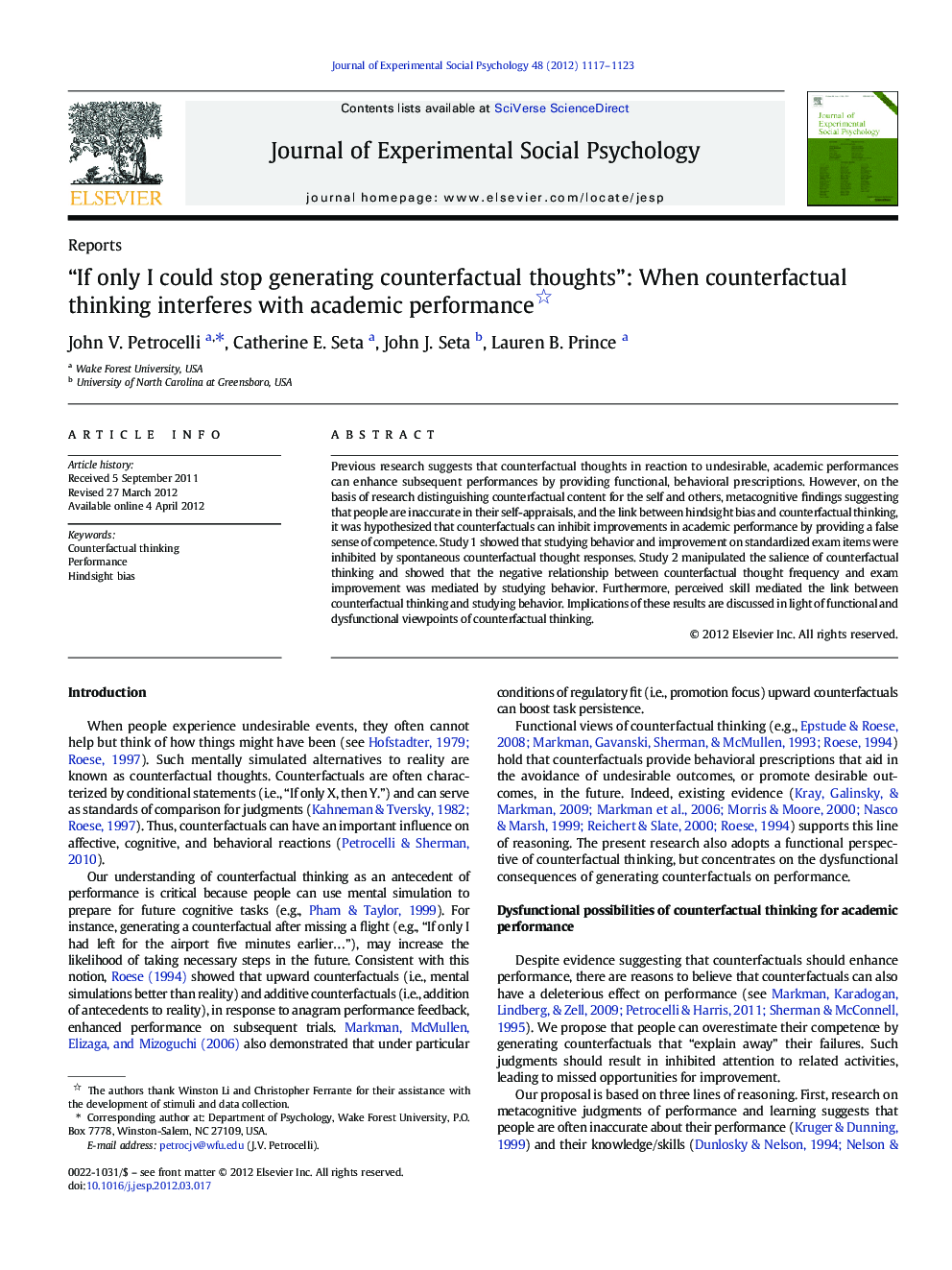| Article ID | Journal | Published Year | Pages | File Type |
|---|---|---|---|---|
| 948047 | Journal of Experimental Social Psychology | 2012 | 7 Pages |
Previous research suggests that counterfactual thoughts in reaction to undesirable, academic performances can enhance subsequent performances by providing functional, behavioral prescriptions. However, on the basis of research distinguishing counterfactual content for the self and others, metacognitive findings suggesting that people are inaccurate in their self-appraisals, and the link between hindsight bias and counterfactual thinking, it was hypothesized that counterfactuals can inhibit improvements in academic performance by providing a false sense of competence. Study 1 showed that studying behavior and improvement on standardized exam items were inhibited by spontaneous counterfactual thought responses. Study 2 manipulated the salience of counterfactual thinking and showed that the negative relationship between counterfactual thought frequency and exam improvement was mediated by studying behavior. Furthermore, perceived skill mediated the link between counterfactual thinking and studying behavior. Implications of these results are discussed in light of functional and dysfunctional viewpoints of counterfactual thinking.
► Studying mediated the negative relationship between counterfactuals and improvement. ► Perceived skill mediated the link between counterfactuals and studying behavior. ► Counterfactuals can inhibit performance by providing a false sense of competence.
